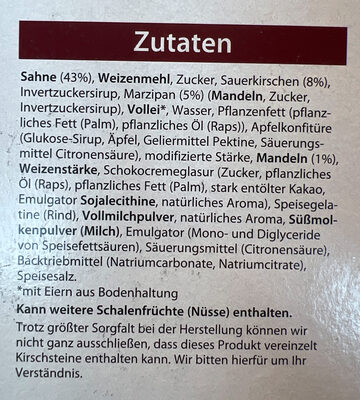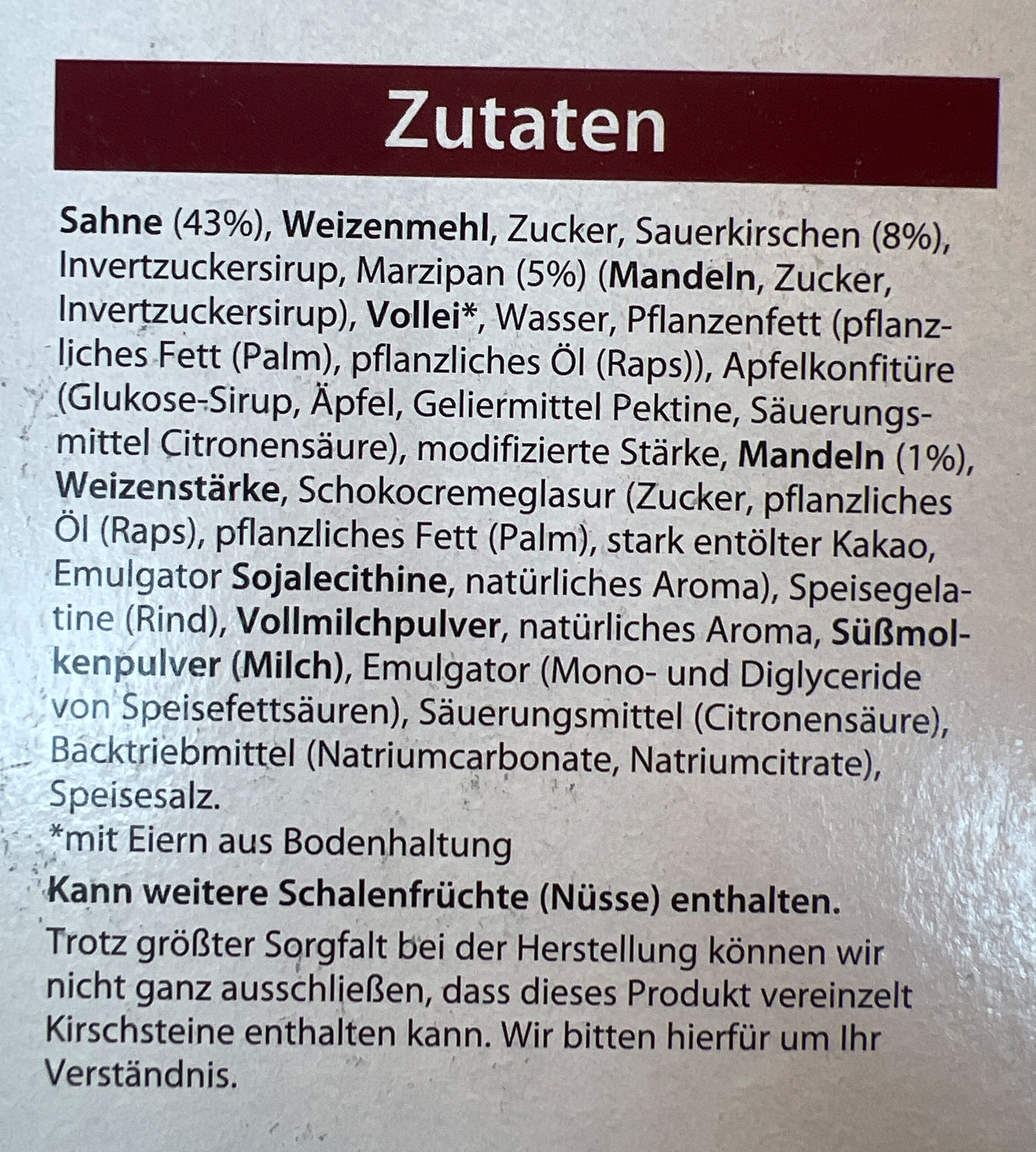Marzipan-Kirsch-Torte - Meine Kuchenwelt - 830 g
This product page is not complete. You can help to complete it by editing it and adding more data from the photos we have, or by taking more photos using the app for Android or iPhone/iPad. Thank you!
×
Barra-kodea: 4047247051194 (EAN / EAN-13)
Kopurua: 830 g
Markak: Meine Kuchenwelt
Kategoriak: de:Sahnetorte
Etiketak, ziurtagiriak, sariak: en:German Agricultural Society, en:Gold medal of the German Agricultural Society, en:No preservatives, en:2020 Gold medal of the German Agricultural Society
Saltzen diren herrialdeak: Espainia
Matching with your preferences
Ingurumena
Ontziratzea
Transportation
Threatened species
Report a problem
Datuen iturria
Product added on by kiliweb
Last edit of product page on by wortelvreter.
Produktuaren orria -gatik editatua halal-app-chakib, roboto-app, thomas1969, yuka.sY2b0xO6T85zoF3NwEKvlkxBQYuErTzGZz_honLamOXVDpbpc8pe-az5PKg.
If the data is incomplete or incorrect, you can complete or correct it by editing this page.











